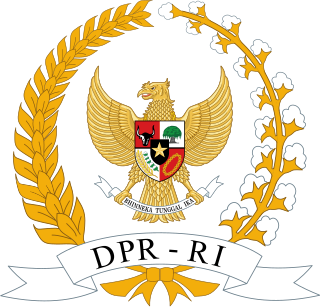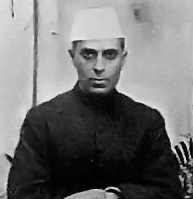
The Legislative Yuan is the unicameral legislature of the Republic of China (Taiwan). The Legislative Yuan chamber is located in Taipei. Legislative Yuan is composed of 113 legislators, which are directly elected by people on Taiwan, Pescadores, as well as people on the Kinmen and Matsu island groups off of mainland China through a parallel voting for a 4-year term. Like parliaments or congresses of other countries, the Legislative Yuan is charged with the passage of legislation, which are then sent to the President for signing. For these similarities, it is also common for people on Taiwan, Kinmen, and Matsu to refer to the Legislative Yuan as “the parliament”.

The Islamic Consultative Assembly, also called the Iranian Parliament, the Iranian Majles, is the national legislative body of Iran. The Parliament currently has 290 representatives, changed from the previous 272 seats since the 18 February 2000 election. The most recent election took place on 21 February 2020 and the new parliament was opened on 28 May 2020. The parliament has no major influence on foreign affairs or Iran's nuclear policy, which are determined by Ali Khamenei.

Indonesia held legislative elections on 5 April 2004 for both houses of the People's Consultative Assembly, the country's national legislature. This included all 550 seats in the People's Representative Council and 128 seats of the new Regional Representative Council.

The People's Representative Council of the Republic of Indonesia, alternatively translatable as the House of Representatives or as the House of People's Representatives, is one of two elected national legislative assemblies in Indonesia.

The Parliament of Pakistan is the federal and supreme legislative body of Pakistan. It is a bicameral federal legislature that consists of the Senate as the upper house and the National Assembly as the lower house. According to the constitution of the Islamic Republic of Pakistan, the President of Pakistan is also a component of the Parliament. The National Assembly is elected for a five-year term on the basis of adult franchise and one-man one-vote. The tenure of a Member of the National Assembly is for the duration of the house, or sooner, in case the Member dies or resigns. The tenure of the National Assembly also comes to an end if dissolved on the advice of the Prime Minister or by the president in his discretion under the Constitution.
The debate over the definition and application of democracy to China has been one of the major ideological battlegrounds in Chinese politics since the 19th century. Modern Chinese leaders state that they run a "socialist democracy" in which the Communist Party of China is the central authority that acts in the interest of the people and approves which political parties can run. Many foreign media outlets, however, describe China as totalitarian, authoritarian, soft authoritarian, as a surveillance state, or as a dictatorship. The Democracy Index, produced by the Economist Intelligence Unit, for instance, gives China a 3.1 out of 10 and classifies its government as authoritarian.

The National Assembly is the lower house of the Parliament of South Africa, located in Cape Town, Western Cape Province. It consists of four hundred members who are elected every five years using a party-list proportional representation system where half of the members are elected proportionally from 9 provincial lists and the remaining half from national lists so as to restore proportionality.

The House of Elders or Mesherano Jirga, is the upper house of the bicameral National Assembly of Afghanistan, alongside the lower House of the People. The House of Elders primarily has an advisory role rather than a maker of law. However, it does have some veto power.
The Senate was the upper house of the Parliament of South Africa between 1910 and its abolition from 1 January 1981, and between 1994 and 1997.

The Consultative Assembly of Saudi Arabia, also known as Majlis ash-Shura or Shura Council, is the formal advisory body of the Kingdom of Saudi Arabia, which is an absolute monarchy. The Consultative Assembly has no executive power. It has the power to propose laws to the King of Saudi Arabia and his cabinet. It cannot pass or enforce laws, which are powers reserved for the King. It has 150 members, all of whom are appointed by the King. Since 2013, the Assembly has included 30 women members. The Consultative Assembly is headed by a Speaker. As of 2016, the Speaker was Abdullah ibn Muhammad Al ash-Sheikh, in line with a tradition that kept the post in that family. The Assembly is based in al-Yamamah Palace, Riyadh.

Tamil Nadu Legislative Council was the upper house of the former bicameral legislature of the Indian state of Tamil Nadu. It began its existence as Madras Legislative Council, the first provincial legislature for Madras Presidency. It was initially created as an advisory body in 1861, by the British colonial government. It was established by the first Indian Council Act of 1861, enacted in the British parliament in the aftermath of the Indian Rebellion of 1857. Its role and strength were later expanded by the second Council Act of 1892. Limited election was introduced in 1909. The Council became a unicameral legislative body in 1921 and eventually the upper chamber of a bicameral legislature in 1937. After India became independent in 1947, it continued to be the upper chamber of the legislature of Madras State, one of the successor states to the Madras Presidency. It was renamed as the Tamil Nadu Legislative Council when the state was renamed as Tamil Nadu in 1969. The Council was abolished by the M. G. Ramachandran administration on 1 November 1986. In 2010 the DMK regime headed by M. Karunanidhi tried to revive the Council. The current AIADMK regime has expressed its intention not to revive the council and has passed a resolution in the Tamil Nadu Legislative Assembly in this regard.
The Yukon Territorial Council was a political body in the Canadian territory of Yukon, prior to the creation of the Yukon Legislative Assembly. Although not a full legislature, the council acted as an advisory body to the Commissioner of Yukon, and had the power to pass non-binding motions of legislation which would be forwarded to the commissioner for consideration.

Provincial elections were held in British India in the winter of 1936-37 as mandated by the Government of India Act 1935. Elections were held in eleven provinces - Madras, Central Provinces, Bihar, Orissa, United Provinces, Bombay Presidency, Assam, NWFP, Bengal, Punjab and Sindh.

The 1912 Republic of China National Assembly elections, held in December 1912 to January 1913, were the first elections for the new founded Republic of China Senate and House of Representatives.

The National People's Congress of the People's Republic of China, normally referred to as the National People's Congress, is the highest organ of state power and the national legislature of the People's Republic of China. With 2,980 members in 2018, it is the largest parliamentary body in the world. The National People's Congress meets in full session for roughly two weeks each year and votes on important pieces of legislation. Members are considered to be part-time legislators and are not paid.
Late Qing reforms, or New Policies, or New Administration of the late Qing dynasty (1901–1912), were a series of cultural, economic, educational, military, and political reforms implemented in the last decade of the Qing dynasty to keep the dynasty in power after the invasions of the great powers of the Eight Nation Alliance in league with the ten provinces of the Southeast Mutual Protection in the Boxer Uprising. The reforms started in 1901 and since they were implemented with the backing of the Empress Dowager Cixi, they are also called Cixi's New Policies.

The Government of the Islamic Republic of Iran is the ruling state and current political system in Iran, in power since the Islamic revolution and fall of the Pahlavi dynasty in 1979.
The 1909 Chinese Provincial Assembly elections were held to elect the members of the Provincial Assemblies of China in April and June 1909 as part of the New Policies under the Qing government as a move toward constitutional monarchy. The Provincial Assemblies were convened on 14 October 1909 and were responsible for electing half of the members of the National Assembly convened subsequently in 1910. The assemblies survived until the fall of the Qing dynasty in 1912 after the Hsinhai Revolution.

The Legislatures of British India included legislative bodies in the presidencies and provinces of British India, the Imperial Legislative Council, the Chamber of Princes and the Central Legislative Assembly. The legislatures were created under Acts of Parliament of the United Kingdom. Initially serving as small advisory councils, the legislatures evolved into partially elected bodies, but were never elected through suffrage. Provincial legislatures saw boycotts during the period of dyarchy between 1919 and 1935. After reforms and elections in 1937, the largest parties in provincial legislatures formed governments headed by a Prime Minister. A few British Indian subjects were elected to the Parliament of the United Kingdom, which had superior powers than colonial legislatures. British Indian legislatures did not include Burma's legislative assembly after 1937, the State Council of Ceylon nor the legislative bodies of princely states.

The Advisory Council was a preparatory body for the parliament established in 1910. It was part of the New Policies in the late Qing dynasty, of which the Qing court was moving toward the setting up of a constitution. In July 1907, Emperor Guangxu promulgated a decree on the setting up of the Advisory Council, following by the provincial Consultative Councils in October. In October 1909, the first Qing parliamentary election was held, and the Council was inaugurated in September 1910. After the Xinhai Revolution, it was dissolved in 1912 and was replaced by the Provisional National Assembly of the Republic of China.














